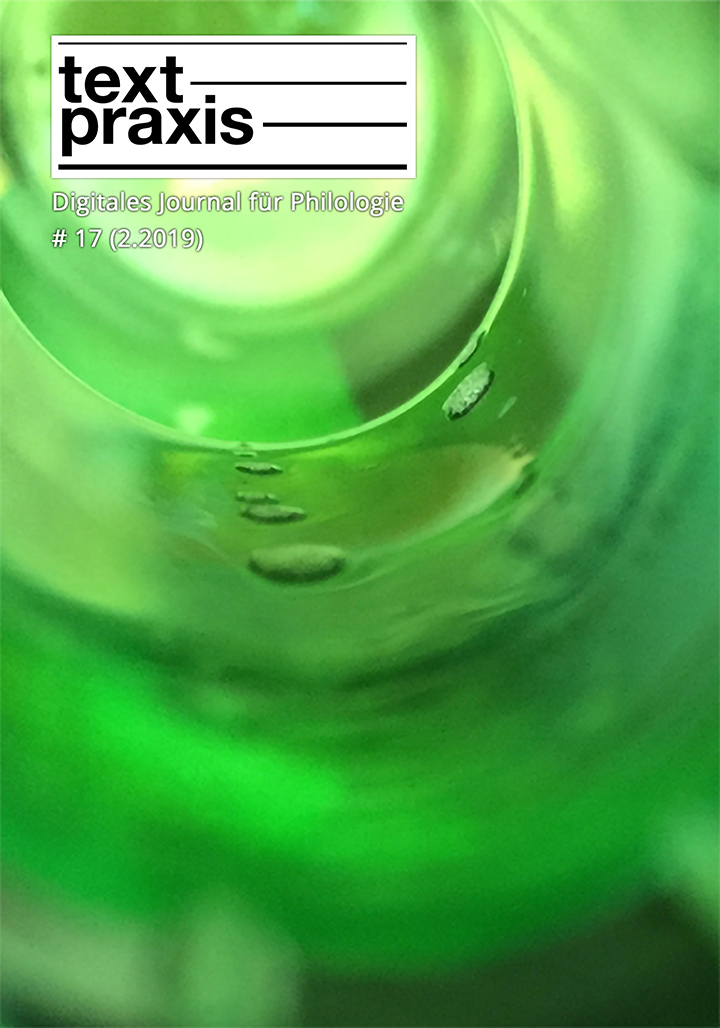Digital Journal for Philology

Textpraxis # 17 (2.2019)
In this issue, Doris Pichler argues for a praxeological concept of ‘text’. Carolin Müller discusses the link between mobility and identity in two novels by Abbas Khider. Jana Maria Weiß explains the mechanics of literary scandals by focusing on their affective dimension.
The paper departs from interdisciplinary research fields such as »Law and Literature« and »Literature and Economics« consisting of disciplines which are all – to a certain extent – text-based disciplines and looks for an interdisciplinarily transferable concept of text which is inspired by literary theory. In a first step the concept of text is analysed in its multi- and interdisciplinarity. In a second step the special conditions and characteristics of a literary theoretical concept of text is elaborated upon, which is then – in the last part – applied to a non-literary (namely economic) text.
This paper focuses on the strategies revealed in narratives of mobile subjects to understand the significance and difficulties of writing social life in in-between places. Using Victor Turner’s conceptions of »liminality« and »communitas«, I provide a comparative reading of Abbas Khider’s Der falsche Inder (2008) and Briefe in die Auberginenrepublik (2013) to trace how different forms of movement can function as indicators for the destabilization of identities and dislocation of a sense of belonging, but also open up opportunities to recognize agency. I discuss the ambiguities of the conditions of contemporary borderlands which Khider’s protagonists inhabit and utilize.
In the summer of 2017, a local controversy about Eugen Gomringer’s poem avenidas at the Berlin Alice Salomon Hochschule expanded to become a nationwide debate about sexism and artistic freedom. Students demanded that the poem has to be removed from the University’s façade, arguing that it represents patriarchal artistic traditions and that the text triggers memories of sexual assault. The University’s decision to meet the students’ demand provoked a large public response. This article explores the affective dimension of the heated debate around Gomringer’s poem, asking which forms of emotional rhetoric characterized the discussion of the case in the press and how talking about emotions contributed to the discursive construction of oppositional groups.
